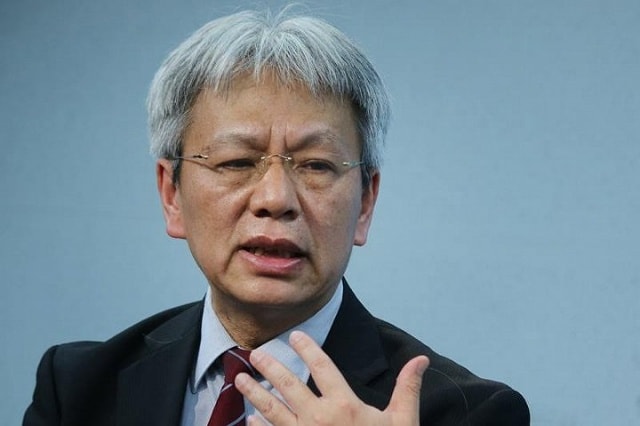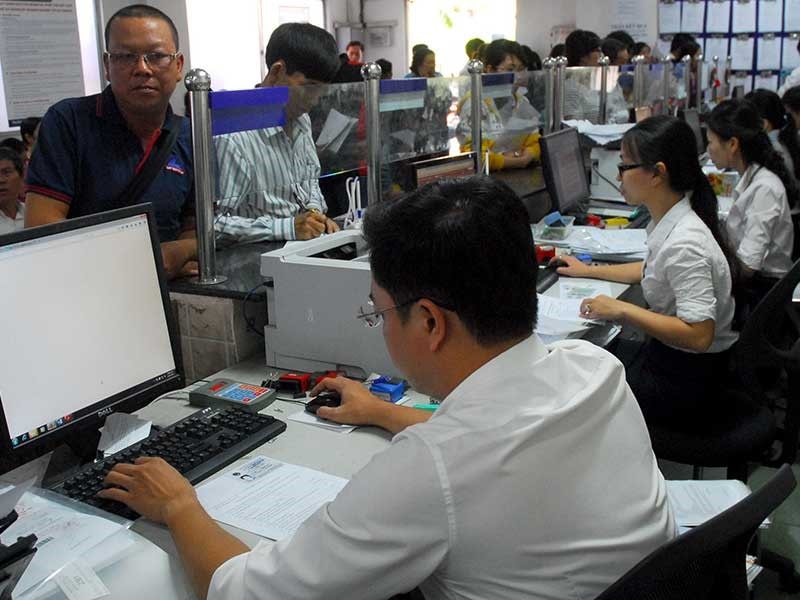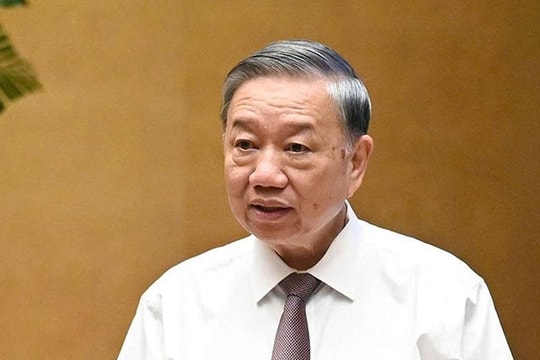People do not want to work hard to support a cumbersome apparatus.
The people are increasingly reacting to the state of the cumbersome and inefficient apparatus. They simply do not want to pay taxes to support a cumbersome apparatus anymore.
One of the issues of concern at the recent 6th Central Conference was the policy of "building a streamlined political system that operates effectively and efficiently". Specific directions were discussed by the 6th Central Committee and it is very likely that there will be a new wind for reform.
On this matter,Ho Chi Minh City Lawtalked with Dr. Nguyen Si Dung, former Deputy Head of the National Assembly Office.
Discourage change
Reporter:Sir, if we look back at history, 18 years ago, the 7th Central Conference of the 8th term in 1999 discussed the issue of organizational structure. After that, the resolution was issued and there were indeed changes and results, although still slow and somewhat not as expected. In your opinion, why is that so?
 |
| Dr. Nguyen Sy Dung. |
+ Dr. Nguyen Si Dung: There are many reasons, but perhaps the most fundamental reason is that the incentive system has not changed. With an incentive system that still operates as before, the tendency to bloat the apparatus will be difficult to overcome.
We can understand it like this: The bigger the apparatus, the more power and benefits it has. The consequence of this is that no one has the motivation to cut the apparatus. Of course, we can also talk about causes related to policy quality, institutional capacity, law enforcement capacity and accountability system. It seems that everything is problematic.
. Anyway, the issue of cutting and merging in the apparatus at that time made the apparatus more or less cumbersome. In your opinion, what was the motivation that made the 7th Central Committee of the 8th term have to mention and discuss thoroughly the issue of apparatus organization? And should we call it motivation or pressure?
+ I think the motivation is of course to gain legitimacy, to gain the trust of the people. However, the pressure of reform and innovation is also very great.
Merger: Few ministries but many departments and general departments
Looking back, we see that: After that conference, the issue of organizational structure had major changes, such as the Ministry of Industry and the Ministry of Trade merging together. In the later period, the organizational structure expanded in another way. Why did this situation occur?
+ The merger of ministries to form a number of ministries with massive functions and powers such as the Ministry of Trade and Industry is indeed an effort. The number of ministries has clearly been reduced. However, if the management mechanism remains unchanged while merging, the result will be few ministries but many departments and general departments.
Why is this happening, sir?
+ As I said above, the incentive system has not changed after each reform attempt. The “pond of duckweed covers up again” effect makes everything the same as before. The duckweed not only covers up again but also gives birth to countless duckweeds and duckweed offspring. According to the law of nature, every institution after being established tends to swell if we do not have an effective monitoring mechanism.
It is clear that our supervisory mechanism is problematic. However, the bigger problem is probably the tendency to create too many institutions “from heaven to earth”. To reduce the apparatus, the most important thing is not to replace the market, not to replace businesses, not to replace the people.
 |
| If the apparatus is streamlined and merged, it will create many common opportunities for the country's development. Illustration photo: HTD |
The budget is not enough to support the apparatus.
The 6th Central Committee of the 12th tenure has also discussed the issue of organizational structure. There have been specific actions such as stopping the activities of three steering committees, and then the directions for merging Party and Government agencies, the front... In your opinion, what is the motivation or pressure that has brought this issue up for discussion at the 6th Central Committee?
+ I think the motivation is still to gain legitimacy, to gain the trust of the people. However, in this case the motivation is not necessarily as great as the pressure.
The biggest pressure here is the budget deficit and the debt ceiling. We simply do not have enough money and cannot borrow more money to feed an increasingly large and greedy apparatus.
The second pressure is public opinion. People are increasingly reacting to the state of the cumbersome and ineffective apparatus. Here, people simply do not want to work their necks off to pay taxes to support such an apparatus.
. Is there any other pressure that forces the Central Government to discuss the issue of a streamlined, effective and efficient apparatus?
+ Of course there is, and that is competitive pressure. Integration means having to compete with the world. Competition is not only between businesses and businesses, but more importantly between national governance and national governance.
Not to mention the quality of policy, if we have to spend twice as much human resources to make policy, we are certainly losing to the world.
Not to mention policy implementation capacity, if we have to spend twice as much human resources to implement policies, we are certainly losing to the world.
“Streamlining does not mean kicking them out onto the streets”
However, I see one thing that is quite worrying, that is, every time there is a reform, the obstacles that arise are very large. For example, when the Ministry of Industry and Trade streamlined a few agencies, there were still many complaints against Minister Tran Tuan Anh. Or when the Ministry of Home Affairs had a project to merge provincial and district departments and offices, as well as streamline commune-level officials, it was opposed.
+ The important thing is to see who is opposed. Are there any people who are opposed to the attempt to streamline the Ministry of Industry and Trade? No people are opposed, right? Then the reform is on the right track!
It is understandable that those whose interests are affected protest. What is important is that in the reform process, fairness must be created and opportunities must be opened up for those who have to leave the system to be taken into account.
Streamlining does not mean kicking them out. Streamlining must be a transformation in the direction of creating conditions for them to develop their strengths. In addition, we must create conditions for the private economy and civil society to develop so that more opportunities are opened up for everyone, including those who have to leave the civil service and political apparatus.
Assuming that the restructuring is successful, what results do you think can be predicted?
+ The results are not too difficult to predict. The budget for the apparatus will certainly be cut. The budget deficit will have a chance to be overcome. The public debt will also not become a burden for the whole population. We have the conditions to reform salaries. The situation of "it eats like that, it only works like that" will have a chance to be overcome. An efficient, professional apparatus will soon be formed.
In addition, the pressure to increase revenue will also decrease. People will no longer have to pay a lot of taxes and fees. People will have money to take care of themselves and their children, and the country will develop thanks to that.
As for those who are eliminated, I have said above. I think it should be called conversion rather than elimination.
Thank you.
According to PLO



.png)

.jpg)

.jpg)
